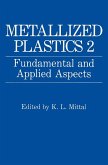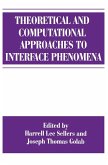This lecture note gives an analysis of electronic structure effects for a new class of molecular solids, i. e. one-dimensional organometal lic systems formed by transition-met. l atoms that are embedded in a matrix of macrocyclic organic ligands. These systems as well as orga nic metals have focused considerable interest due to the potential formation of high-mobility charge carriers. For the present author it is difficult to participate in this restriction on a single physical property (i. e. high electronic conductivities, technical applications, etc. ). The lecture note is hopefully a small contribution to enhance the general understanding of certain electronic properties in organo metallic polymers. Those problems have been considered in the first place that seem to form a theoretical deficit in one specific field of solid-state chemistry. For the reader it will become evident that this contribution is a compromise always guided and limited by boundaries: i) An attempt to present problems to a ·chemical· audience which have their roots in solid-state physics. ii) The model calculations are limited by the currently available computational facilities. This ·boundary· implies that the compu tational data a~e subject to severe theoretical approximations. iii) Theorists have often a strong tendency to identify their numeri cal results and models with physical effects. Also this lecture note is not free of this almost universal trend. Nevertheless the author hopes that this text leads to some insight into a rather modern research field. M. e. B6hm I.
Dieser Download kann aus rechtlichen Gründen nur mit Rechnungsadresse in A, B, BG, CY, CZ, D, DK, EW, E, FIN, F, GR, HR, H, IRL, I, LT, L, LR, M, NL, PL, P, R, S, SLO, SK ausgeliefert werden.









